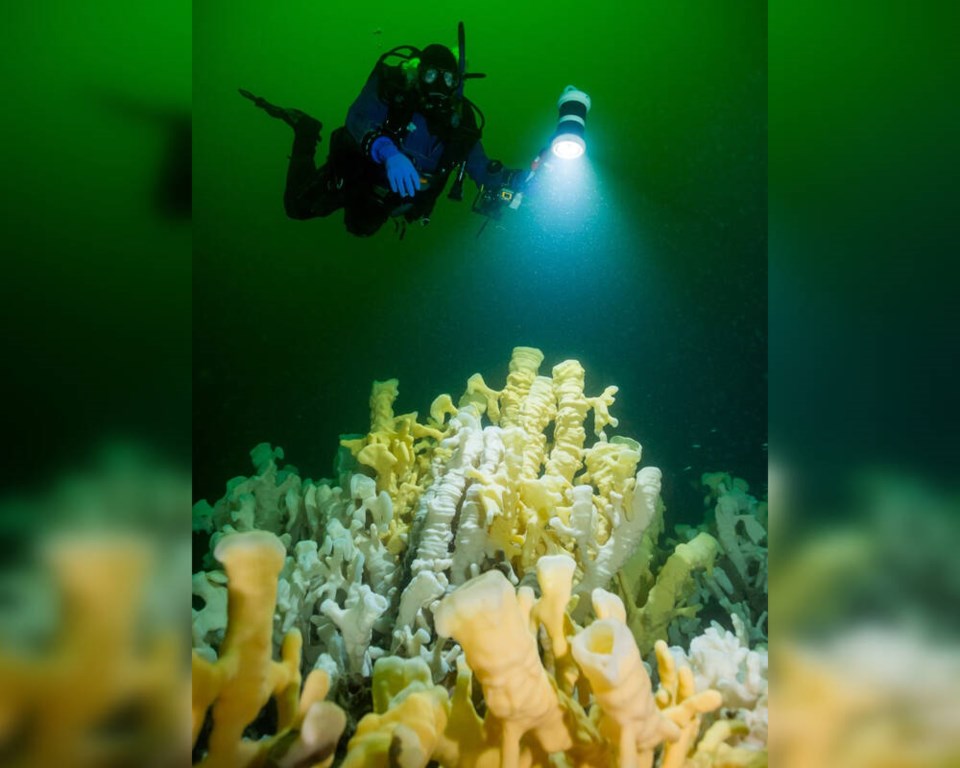A man fined $18,000 for illegal prawn fishing in Howe Sound’s protected glass sponge reef areas has failed to have his penalty reduced in court.
Jian Lun Aaron Zhang pleaded guilty in July 2022 to Fisheries Act charges of fishing in a glass sponge reef closure, fishing with more traps than permitted and fishing with improperly marked gear.
Department of Fisheries and Oceans officers caught Zhang with eight traps, which is double the legal amount, inside Queen Charlotte Channel in between Bowen Island and West Vancouver, the B.C. Supreme Court ruling handed down on July 19 reveals. The buoys had his anglicized name, Allen, written on them, but not his legal name.
Along with the traps, the officers also seized 474 shrimp and 49 prawn, which had been illegally harvested, the ruling notes. They also found perch, flounder, rockfish, Dungeness crabs and six dogfish cut up in pieces.
In November of 2022, Zhang was sentenced to $18,000 in fines for the three convictions.
Glass sponge reefs are ancient species once thought to be extinct. They are valuable to the local environment because they can filter vast amounts of water and provide habitat for other species. But, as their name suggests, they are incredibly brittle and easy to damage with fishing gear.
Of the nine protected glass sponge reefs in Howe Sound, the one in Queen Charlotte where Zhang was fishing was ranked third in “species richness,” the ruling notes.
But Zhang appealed the sentence, arguing it was excessive for convictions related to recreational fishing. The judge put too much weight on the aggravating circumstances of his case and not enough on the mitigating ones, he added.
Under Canadian case law, courts will not interfere with a judge’s sentence unless it is shown the judge “committed an error in principle that had an impact on the sentence ... or where the sentence is demonstrably unfit.”
Zhang, representing himself in court, attempted to argue that the rockfish was caught elsewhere. He said there were enough licences onboard the boat for the traps that were seized, which he had allocated to his friends. He argued his limited grasp of English and his willingness to co-operate with DFO investigators should have been considered, and that it was an honest mistake for him to use his anglicized name on the traps.
Instead of the $18,000 in fines, Zhang said he should only have to pay $575 for each of his convictions.
B.C. Supreme Court Justice Carol Ross, however, rejected all of Zhang’s arguments, finding that he was simply trying to reargue points he’d already made at sentencing, and that he was attempting to introduce new evidence not admissible on appeal.
The original sentence was within the judge’s discretion, Ross added, and the penalty was not excessive given the facts of the case and Zhang’s moral culpability.
“I am satisfied that the sentence imposed did not constitute a marked departure from the range, particularly given the serious nature of the offence of fishing in a glass sponge reef closure, which carries significant environmental impact and potential for lasting harm,” she wrote.

-adam-taylor,-mlss.jpg;w=120;h=80;mode=crop)
